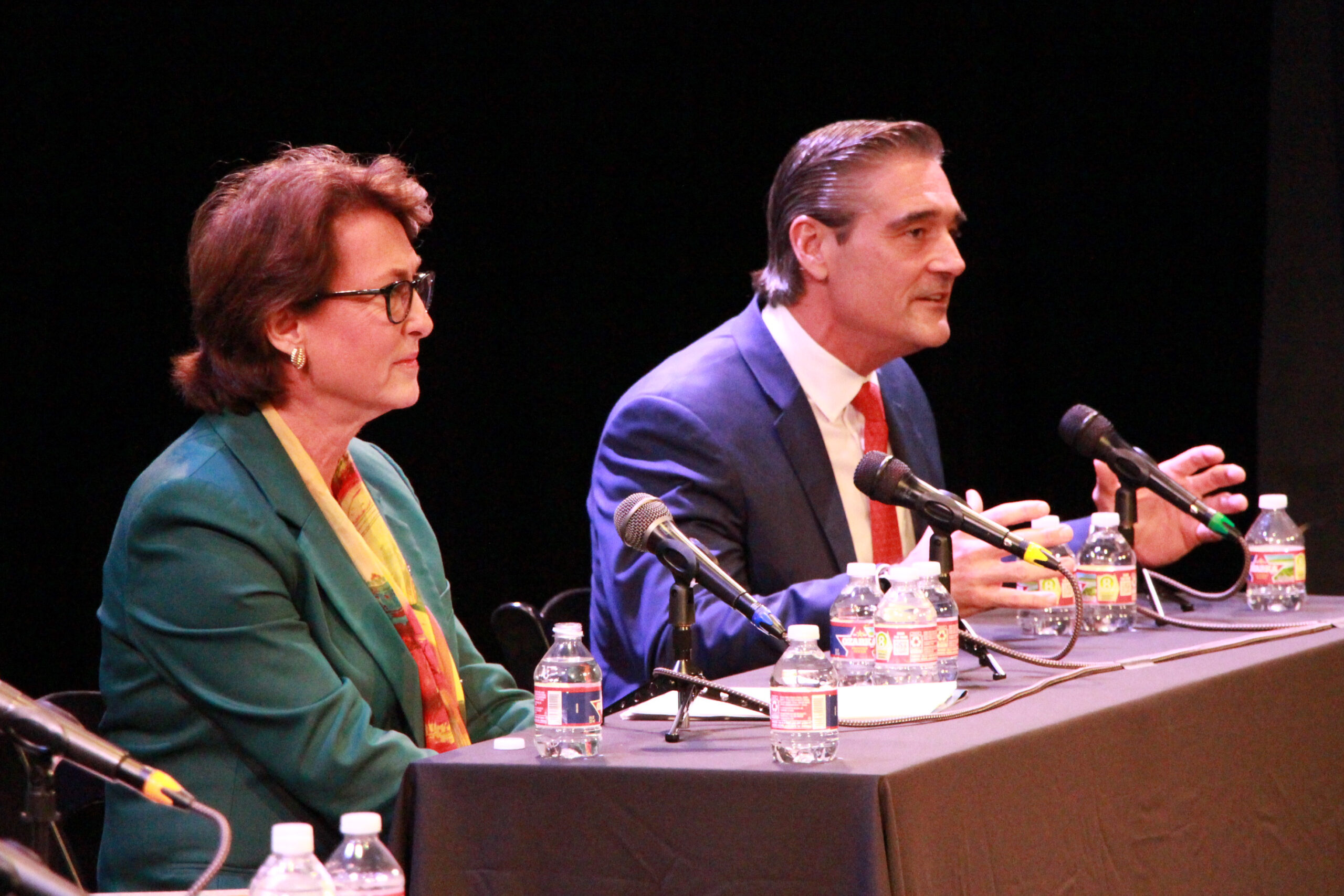
What Does Judge Denise Pratt Have to Do to Lose Her Job?
Early voting for the March primaries will begin in just a month and, as usual, all eyes will be on top-ballot races with multiple viable candidates. But one far less noticeable Harris County vote may help answer a perennial political question: Does bad press make a difference in down-ballot races?
At issue is Denise Pratt, the judge for the 311th Family District Court. She faces four Republican challengers in the primary. And with good reason: She’s been mired in scandal since last October and a fresh round of allegations has just emerged. But unlike so many scandals, the accusations against Pratt have nothing to do with slush funds, tax fraud, or “hiking the Appalachian Trail.” Rather, they’re about how she does her job, if she’s negligent, whether she broke the law to cover it up.
The Houston Chronicle, Houston Press, and even local conservative bloggers have reported the debacle diligently. Defenses and explanations offered by Pratt’s lawyer have ranged from weak to nonsensical. But should Pratt win the primary, she’s likely to keep her judgeship thanks to straight-ticket voting. So if persistent, apparently well earned bad press is going to make a difference, it’ll be on March 4th.
Here’s the Denise Pratt story, also known as How to Lose Friends and Alienate Lawyers.
Pratt started strong. An experienced family law attorney, she garnered a Chronicle endorsement and beat four other candidates in the 2010 primary without a runoff. Then she won election by 10 points. But for reasons unknown, Judge Pratt fell behind. She started issuing rulings long after their hearings and letting cases pile up that needed only a signature. In May of last year, the 14th Court of Appeals reprimanded Pratt for “unreasonable” delays and ordered her to rule on a case she’d heard 10 months before, which she did.
Then the intrigue began. In June 2013, just after the appeals court slapped Pratt’s wrist, a man whose divorce case Pratt heard three months earlier finally got his ruling. His hearing had been March 25th. The ruling was dated March 25th. But the man didn’t receive notice until June. This was, he said, despite contacting Pratt’s office repeatedly and being told he’d get the ruling as soon as it was ready.
Greg Enos, a local family law attorney, was suspicious. Enos suspected Pratt had gotten in trouble, fished out an overdue case and backdated the ruling. He wrote as much in his watchdog blog, “The Mongoose,” and asked other lawyers who suspected judicial shenanigans to contact him.
They did. When Enos filed a criminal complaint against Pratt in October, he cited six cases and alleged rampant backdating. In November, 32 Houston-area family law attorneys signed a letter calling for Pratt to step down. Then the Houston Bar Association’s biennial judicial evaluations savaged her. Seventy six percent of respondents said Pratt was “poor” at following the law; 81 percent said she was bad at issuing timely rulings; 83 percent reporting she wasted attorney time; and 79 percent rating her poor at working hard and being prepared. In all, 57 percent of respondents gave her the lowest of five possible overall ranks.
But Pratt wasn’t merely unpopular. Enos’ complaint sparked an investigation by the Harris County district clerk, during which Pratt’s lead clerk, a 25-year veteran, pleaded the Fifth and resigned. Pratt heard one case in January, issued a ruling in May, and dated the ruling a day before the two-day trial actually ended.
The district attorney empaneled a grand jury to investigate whether the judge tampered with court records. Though in December the grand jury declined to indict Pratt, visiting judges did grant eight lawyers’ requests to have her removed from their cases.
And her time on the un-fun side of the bench may not be over. On Thursday, Enos filed another complaint against Pratt, this time citing what the Chronicle adorably calls a “surprise docket purge” of more than 700 cases in a month.
For obvious reasons, if a judge schedules a hearing he or she has to give the affected lawyers notice. Failure to appear can be grounds for dismissal. But according to Enos and several other lawyers, Judge Pratt dismissed hundreds of cases without warning attorneys to show up. Most of the purged cases were signed on Dec. 30 and 31, when the district clerk’s office told the Chronicle no dismissal dockets were scheduled.
It’s hard to see how Pratt thought this would go well. Her lawyer, Terry Yates, has yet to pitch a convincing explanation for any apparent improprieties, though he’s made up for in quantity what his explanations lack in quality. Among the justifications offered are:
- Lawyers didn’t receive notice because of the new electronic filing system in the District Clerk’s office, which that office’s spokesperson told the Chronicle “has nothing to do with the mailing of notices.”
- Lawyers with dismissed cases have “just got to file a motion to reinstate…so it’s really no big deal,” Yates said to the Chronicle.
- Purging cases at the end of the year is normal, though in December Pratt dismissed at least 561 and the eight other family court judges dismissed between 28 and 121.
- Pratt has the most pending cases of any family court—more than 3,000—which Yates told the Chronicle is “really a legislative issue to get more family courts here so the dockets are manageable.”
- And of course, no litany of excuses would be complete without this old chestnut: The accusations against Pratt are, according to her email to GOP precinct chairs, all “rumors that are being spread by the Democrats and the liberal media.”
Even if all the criminal and more moustache-twirling allegations against Pratt are untrue, there’s no question that she issues tardy rulings, lets cases pile up, and is held in abysmal esteem by the lawyers with whom she works. All indicators suggest, in short, that she does a bad job. She’s also not a seasoned incumbent letting things slide; this is her first term. And she’s drawn four challengers in the primary.
One would think all this would doom her, but besides incumbency she has one advantage: While the local conservative press has turned against her, the Republican Party hasn’t withdrawn its endorsement. Thus, Pratt’s primary pits the media against the establishment.
It’s not Chris Christie-level drama, but for the hundreds of Houstonians whose divorces and child visitation rights hang in the balance, the quality of a single judge matters very much indeed. The question is, come March 4th, will that matter to the voters?


